CHAPTER I
您可以在百度里搜索“Now It Can Be Told 艾草文学(www.321553.xyz)”查找最新章节!
PART EIGHT.
FOR WHAT MEN DIED
CHAPTER I
In this book I have written in a blunt way some episodes of the war as I observed them, and gained first-hand knowledge of them in their daily traffic. I have not painted the picture blacker than it was, nor selected gruesome morsels and joined them together to make a jig-saw puzzle for ghoulish delight. Unlike Henri Barbusse, who, in his dreadful book Le Feu, gave the unrelieved blackness of this human drama, I have here and in other books shown the light as well as the shade in which our men lived, the gaiety as well as the fear they had, the exultation as well as the agony of battle, the spiritual ardor of boys as well as the brutality of the task that was theirs. I have tried to set down as many aspects of the war's psychology as I could find in my remembrance of these years, without exaggeration or false emphasis, so that out of their confusion, even out of their contradiction, the real truth of the adventure might be seen as it touched the souls of men.
Yet when one strives to sum up the evidence and reach definite conclusions about the motives which led men of the warring nations to kill one another year after year in those fields of slaughter, the ideals for which so many millions of men laid down their lives, and the effect of those years of carnage upon the philosophy of this present world of men, there is no clear line of thought or conviction.
It is difficult at least to forecast the changes that will be produced by this experience in the social structure of civilized peoples, and in their relations to one another though it is certain, even now, that out of the passion of the war a new era in the world's history is being born. The ideas of vast masses of people have been revolutionized by the thoughts that were stirred up in them during those years of intense suffering. No system of government designed by men afraid of the new ideas will have power to kill them, though they may throttle them for a time. For good or ill, I know not which, the ideas germinated in trenches and dugouts, in towns under shell—fire or bomb-fire, in hearts stricken by personal tragedy or world-agony, will prevail over the old order which dominated the nations of Europe, and the old philosophy of political and social governance will be challenged and perhaps overthrown. If the new ideas are thwarted by reactionary rulers endeavoring to jerk the world back to its old-fashioned discipline under their authority, there will be anarchy reaching to the heights of terror in more countries than those where anarchy now prevails. If by fear or by wisdom the new ideas are allowed to gain their ground gradually, a revolution will be accomplished without anarchy. But in any case, for good or ill, a revolution will happen. It has happened in the sense that already there is no resemblance between this Europe after-the-war and that Europe-before-the-war, in the mental attitude of the masses toward the problems of life. In every country there are individuals, men and women, who are going about as though what had happened had made no difference, and as though, after a period of restlessness, the people will “settle down” to the old style of things. They are merely sleep-walkers. There are others who see clearly enough that they cannot govern or dupe the people with old spell-words, and they are struggling desperately to think out new words which may help them to regain their power over simple minds. The old gangs are organizing a new system of defense, building a new kind of Hindenburg line behind which they are dumping their political ammunition. But their Hindenburg line is not impregnable. The angry murmur of the mob—highly organized, disciplined, passionate, trained to fight, is already approaching the outer bastions.
In Russia the mob is in possession, wiping the blood out of their eyes after the nightmare of anarchy, encompassed by forces of the old regime, and not knowing yet whether its victory is won or how to shape the new order that must follow chaos.
In Germany there is only the psychology of stunned people, broken for a time in body and spirit, after stupendous efforts and bloody losses which led to ruin and the complete destruction of their old pride, philosophy, and power. The revolution that has happened there is strange and rather pitiful. It was not caused by the will—power of the people, but by a cessation of will-power. They did not overthrow their ruling dynasty, their tyrants. The tyrants fled, and the people were not angry, nor sorry, nor fierce, nor glad. They were stupefied. Members of the old order joined hands with those of the people's parties, out to evolve a republic with new ideals based upon the people's will and inspired by the people's passion. The Germans, after the armistice and after the peace, had no passion, as they had no will. They were in a state of coma. The “knock-out blow” had happened to them, and they were incapable of action. They just ceased from action. They had been betrayed to this ruin by their military and political rulers, but they had not vitality enough to demand vengeance on those men. The extent of their ruin was so great that it annihilated anger, political passion, pride, all emotion except that of despair. How could they save something out of the remnants of the power that had been theirs? How could they keep alive, feed their women and children, pay their monstrous debts? They had lost their faith as well as their war. Nothing that they had believed was true. They had believed in their invincible armies—and the armies had bled to death and broken. They had believed in the supreme military genius of their war lords, and the war lords, blunderers as well as criminals, had led them to the abyss and dropped them over. They had believed in the divine mission of the German people as a civilizing force, and now they were despised by all other peoples as a brutal and barbarous race, in spite of German music, German folk-songs, German art, German sentiment. They had been abandoned by God, by the protecting hand of the altes gutes Deutsches Gottes to whom many had prayed for comfort and help in those years of war, in Protestant churches and Catholic churches, with deep piety and childlike faith. What sins had they done that they should be abandoned by God? The invasion of Belgium? That, they argued, was a tragic necessity. Atrocities? Those were (they believed) the inventions of their enemies. There had been stern things done, terrible things, but according to the laws of war. Francs-tireurs had been shot. That was war. Hostages had been shot. It was to save German lives from slaughter by civilians. Individual brutalities, yes. There were brutes in all armies. The U-boat war? It was (said the German patriot) to break a blockade that was starving millions of German children to slow death, condemning millions to consumption, rickets, all manner of disease. Nurse Cavell? She pleaded guilty to a crime that was punishable, as she knew, by death. She was a brave woman who took her risk open-eyed, and was judged according to the justice of war, which is very cruel. Poison-gas? Why not, said German soldiers, when to be gassed was less terrible than to be blown to bits by high explosives? They had been the first to use that new method of destruction, as the English were the first to use tanks, terrible also in their destructiveness. Germany was guilty of this war, had provoked it against peaceful peoples? No! A thousand times no. They had been, said the troubled soul of Germany, encompassed with enemies. They had plotted to close her in. Russia was a huge menace. France had entered into alliance with Russia, and was waiting her chance to grab at Alsace-Lorraine. Italy was ready for betrayal. England hated the power of Germany and was in secret alliance with France and Russia. Germany had struck to save herself. “It was a war of self-defense, to save the Fatherland.”
The German people still clung desperately to those ideas after the armistice, as I found in Cologne and other towns, and as friends of mine who had visited Berlin told me after peace was signed. The Germans refused to believe in accusations of atrocity. They knew that some of these stories had been faked by hostile propaganda, and, knowing that, as we know, they thought all were false. They said “Lies-lies-lies!”—and made counter—charges against the Russians and Poles. They could not bring themselves to believe that their sons and brothers had been more brutal than the laws of war allow, and what brutality they had done was imposed upon them by ruthless discipline. But they deplored the war, and the common people, ex-soldiers and civilians, cursed the rich and governing classes who had made profit out of it, and had continued it when they might have made peace with honor. That was their accusation against their leaders—that and the ruthless, bloody way in which their men had been hurled into the furnace on a gambler's chance of victory, while they were duped by faked promises of victory.
When not put upon their defense by accusations against the whole Fatherland, the German people, as far as I could tell by talking with a few of them, and by those letters which fell into our hands, revolted in spirit against the monstrous futility and idiocy of the war, and were convinced in their souls that its origin lay in the greed and pride of the governing classes of all nations, who had used men's bodies as counters in a devil's game. That view was expressed in the signboards put above the parapet, “We're all fools: let's all go home”; and in that letter by the woman who wrote:
“For the poor here it is terrible, and yet the rich, the gilded ones, the bloated aristocrats, gobble up everything in front of our very eyes... All soldiers—friend and foe—ought to throw down their weapons and go on strike, so that this war, which enslaves the people more than ever, may cease.”
It is that view, terrible in its simplicity, which may cause a more passionate revolution in Germany when the people awaken from their stupor. It was that view which led to the Russian Revolution and to Bolshevism. It is the suspicion which is creeping into the brains of British working-men and making them threaten to strike against any adventure of war, like that in Russia, which seems to them (unless proved otherwise) on behalf of the “gilded ones” and for the enslavement of the peoples.
Not to face that truth is to deny the passionate convictions of masses of men in Europe. That is one key to the heart of the revolutionary movement which is surging beneath the surface of our European state. It is a the belief of many brooding minds that almost as great as the direct guilt of the German war lords was the guilt of the whole political society of Europe, whose secret diplomacy (unrevealed to the peoples) was based upon hatred and fear and rivalry, in play for imperial power and the world's markets, as common folk play dominoes for penny points, and risking the lives of common folk in a gamble for enormous stakes of territory, imperial prestige, the personal vanity of politicians, the vast private gain of trusts and profiteers. To keep the living counters quiet, to make them jump into the pool of their own free will at the word “Go,” the statesmen, diplomats, trusts, and profiteers debauch the name of patriotism, raise the watchword of liberty, and play upon the ignorance of the mob easily, skillfully, by inciting them to race hatred, by inflaming the brute-passion in them, and by concocting a terrible mixture of false idealism and self-interest, so that simple minds quick to respond to sentiment, as well as those quick to hear the call of the beast, rally shoulder to shoulder and march to the battlegrounds under the spell of that potion. Some go with a noble sense of sacrifice, some with blood-lust in their hearts, most with the herd-instinct following the lead, little knowing that they are but the pawns of a game which is being played behind closed doors by the great gamblers in the courts and Foreign Offices, and committee-rooms, and counting-houses, of the political casinos in Europe.
I have heard the expression of this view from soldiers during the war and since the war, at street-corners, in tram-cars, and in conversations with railway men, mechanics, policemen, and others who were soldiers a year ago, or stay-at-homes, thinking hard over the meaning of the war. I am certain that millions of men are thinking these things, because I found the track of those common thoughts, crude, simple, dangerous, among Canadian soldiers crossing the Atlantic, in Canadian towns, and in the United States, as I had begun to see the trail of them far back in the early days of the war when I moved among French soldiers, Belgian soldiers, and our own men.
My own belief is not so simple as that. I do not divorce all peoples from their governments as victims of a subtle tyranny devised by statesmen and diplomats of diabolical cunning, and by financial magnates ready to exploit human life for greater gains. I see the evil which led to the crime of the war and to the crimes of the peace with deep-spread roots to the very foundation of human society. The fear of statesmen, upon which all international relations were based, was in the hearts of peoples. France was afraid of Germany and screwed up her military service, her war preparations, to the limit of national endurance, the majority of the people of France accepting the burden as inevitable and right. Because of her fear of Germany France made her alliance with Russian Czardom, her entente cordiale with Imperial England, and the French people poured their money into Russian loans as a life insurance against the German menace. French statesmen knew that their diplomacy was supported by the majority of the people by their ignorance as well as by their knowledge.
So it was in Germany. The spell-words of the German war lords expressed the popular sentiment of the German people, which was largely influenced by the fear of Russia in alliance with France, by fear and envy of the British Empire and England's sea-power, and by the faith that Germany must break through that hostile combination at all costs in order to fulfil the high destiny which was marked out for her, as she thought, by the genius and industry of her people. The greed of the “bloated aristocrats” was only on a bigger scale than the greed of the small shopkeepers. The desire to capture new markets belonged not only to statesmen, but to commercial travelers. The German peasant believed as much in the might of the German armies as Hindenburg and Ludendorff. The brutality of German generals was not worse than that of the Unteroffizier or the foreman of works.
In England there was no traditional hatred of Germany, but for some years distrust and suspicions, which had been vented in the newspapers, with taunts and challenges, stinging the pride of Germans and playing into the hands of the Junker caste.
Our war psychology was different from that of our allies because of our island position and our faith in seapower which had made us immune from the fear of invasion. It took some time to awaken the people to a sense of real peril and of personal menace to their hearths and homes. To the very end masses of English folk believed that we were fighting for the rescue of other peoples—Belgian, French, Serbian, Rumanian—and not for the continuance of our imperial power.
The official propaganda, the words and actions of British statesmen, did actually express the conscious and subconscious psychology of the multitude. The call to the old watchwords of national pride and imperial might thrilled the soul of a people of proud tradition in sea—battles and land-battles. Appeals for the rescue of “the little nations” struck old chords of chivalry and sentiment—though with a strange lack of logic and sincerity Irish demand for self-government was unheeded. Base passions as well as noble instincts were stirred easily. Greedy was the appetite of the mob for atrocity tales. The more revolting they were the quicker they were swallowed. The foul absurdity of the “corpse-factory” was not rejected any more than the tale of the “crucified Canadian” (disproved by our own G.H.Q.) or the cutting off of children's hands and women's breasts, for which I could find no evidence from the only British ambulances working in the districts where such horrors were reported. Spy-mania flourished in mean streets, German music was banned in English drawing-rooms. Preachers and professors denied any quality of virtue or genius to German poets, philosophers, scientists, or scholars. A critical weighing of evidence was regarded as pro-Germanism and lack of patriotism. Truth was delivered bound to passion. Hatred at home, inspired largely by feminine hysteria and official propaganda, reached such heights that when fighting-men came back on leave their refusal to say much against their enemy, their straightforward assertions that Fritz was not so black as he was painted, that he fought bravely, died gamely, and in the prison-camps was well-mannered, decent, industrious, good-natured, were heard with shocked silence by mothers and sisters who could only excuse this absence of hate on the score of war-weariness. Now It Can Be Told




